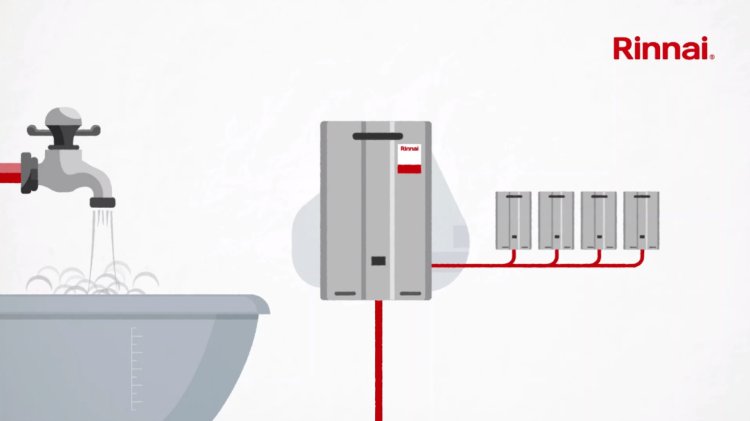04 March 2020
Fleet management expert Peter Crabtree, of Europcar Mobility Group, explores the latest issues around business travel, company cars and sustainable employee mobility.
Benefit in kind tax changes and economic uncertainty, combined with a global pressure to reduce emissions and rapidly evolving technology are creating a perfect storm for businesses when it comes to the mobility of their people.
As a major player in the new mobility marketplace, Europcar Mobility Group UK is focused on delivering solutions that set the benchmark for efficient, cost-effective and environmentally sustainable employee mobility. To help us tailor our solutions to the needs of businesses, we have undertaken research amongst those responsible for business travel, to uncover the pain points and identify the opportunities for change. And a key message that has come out of our most recent research has been that the old view of the “company car” is changing beyond all recognition.
For nearly half of the firms surveyed, they said they provide employees with a company car or van. But nearly a third also expect their employees to use their own vehicles for business travel. Rental vehicles are contracted for staff for a quarter of firms and more than 1 in 5 enable staff to access car share schemes.
However, over a quarter of companies with 10-25 employees rely on grey fleet vehicles, rising to 40% for firms with 26-50 employees.
Are company cars the only solution?
Although transport remains important for many employees to be able to do their job, providing a company vehicle isn’t necessarily the solution for all workers. Nearly a third of firms provide between a quarter and half of staff with a company vehicle. And of the smaller companies with 10-25 employees, nearly a quarter don’t provide any employees with company vehicles, compared to only 2% of companies with over 500 employees saying the same.
Significantly our research suggests that the changing rules surrounding Benefit in Kind tax are impacting the control employers have over the mobility solutions their employees use. Nearly a third of respondents said that up to 25% of staff have opted for cash for car with 26-50% of the workforce choosing this option for nearly a quarter of companies.
This trend probably explains why almost half of companies said that up to 30% of employees use their own vehicle for business journeys. And nearly 1 in 5 firms said that between 31% and 50% of employees use their own vehicle for work travel.
"Benefit in kind tax changes and economic uncertainty, combined with a global pressure to reduce emissions and rapidly evolving technology are creating a perfect storm for businesses when it comes to the mobility of their people."
–Peter Crabtree
Corporate Sales Director, Europcar Mobility Group UK
Cash for car
Besides the lack of control that comes with a growing dependence on grey fleet – prompted by the rise in people opting for cash for car – there is another, perhaps even more serious, consequence. By encouraging people to use their own vehicles, which are generally likely to be older and therefore less advanced when it comes to emissions, there is a direct conflict with government emissions targets as well as firms own sustainability agendas.
Over 1 in 5 of businesses told us that they believe the current Benefit in Kind tax framework doesn’t align with the government goal to reduce CO2 emissions, with more than half of businesses with 250-299 employees agreeing with this sentiment. It seems, therefore, that there is frustration with infrastructure and government policy when it comes to the support that businesses need to adopt new technologies and reduce their emissions.
And this lack of confidence is probably also reflected in the proportion of alternative fuelled vehicles currently used by UK businesses.
Confidence in new hybrid technology
Despite all the initiatives by government – and the manufacturers – just over a third of those surveyed currently operate hybrid vehicles. And unsurprisingly, the smallest firms are the least likely to embrace new technologies, which can come at a premium. Among those with fewer than 10 staff, 81% don’t run any alternative fuelled vehicles, with 38% of those with 10-25 employees saying the same.
Unfortunately, whilst firms have an expectation of improving employee mobility, there is less confidence in the infrastructure required to underpin it. Over half of the largest businesses (500+ staff) don’t think the electric charging infrastructure is currently adequate; 28% of the smallest businesses (under 10 employees) expressed the same sentiment. Plus, nearly a third of respondents don’t feel that their company is ready to adopt electric vehicles, currently.
What about public transport?
But it’s not just down to emerging automotive technologies. Over a third of businesses don’t think public transport in the UK is adequate to make business travel efficient. The UK roads are also a source of frustration, with nearly a third of businesses feeling they aren’t adequate for efficient employee mobility.
All of these barriers to embracing a more sustainable mobility strategy are also frustrated by a lack of control over grey fleet usage which is currently being incentivised by the cash for car scheme.
What we did find, however, was that expectations of business decision makers change in relation to their mobility needs in 2022. Although company cars or vans still dominate, with 45% seeing them as part of the landscape, a further 19% expect autonomous vehicles to play a key role. Ride hailing services are also expected to increase from 10% today to 16% in 2022.
Dependence on grey fleet remains, but shared services are expected to increase, as car share/car clubs are expected to account for 27% of employee mobility. In addition, rental is favoured by 28% of respondents with 23% expecting pool fleet as part of the business travel landscape in 2022.
Public transport features fairly low at just over 1 in 5, below pool fleets with firms of 250-499 most likely to see it as part of the mobility offering in 2022. Interestingly, bicycles rate higher than both scooters and taxis in the vision of future business travel, showing the value of sustainable transport options.
Over a third of respondents think autonomous vehicles will be the norm in 3-5 years, with just under a third thinking it’ll take another 6-10 years before they are widespread in the UK.
Mobility solutions
One way to overcome the current challenges created by the “cash4cars” upsurge is to integrate a range of mobility solutions that offer viable alternatives for both employees and businesses. If journey optimisation is an integrated component of a multi-modal mobility service, businesses and their travellers can choose the best travel option for every journey. Short-term rental is a good option for staff making a number of appointments in one day, while services such as Europcar’s Advantage long-term rental are ideal for probationary or contract staff that it would not make sense to enter into a long-term vehicle lease for. Taxi and chauffeur hire provides flexibility for specific trips and even car share has a role for business travel for quick trips around a city.
Employers can also help their staff manage their own cash4car budget by recommending solutions that don’t necessarily tie them into a long-term contract like a PCP or lease. For example, Europcar recently launched Long Term Flex, a product ideal for the “cash4car” audience. Unlike traditional leasing or Personal Contract Hire, Europcar Long Term Flex offers the flexibility of 6-18 month contracts, has no large upfront payment and no exit penalty after 6 months.
“Cash4car” isn’t going to go away, so it’s vital for business productivity and profitability – and the wider environment – that fleet, business travel and mobility managers adopt new processes and policies to keep a control on grey fleet usage.
Picture: Fleet management expert Peter Crabtree, of Europcar Mobility Group, explores the latest issues around business travel, company cars and sustainable employee mobility.
Article written by Peter Crabtree | Published 04 March 2020
Share
Related Articles
Europcar Mobility Group Delivers For South Central Ambulance Service
Europcar Mobility Group UK has supplied 61 economy-sized vehicles to MOD paramedics who have been drafted in to support South Central Ambulance Service’s emergency...
Read Full Article
FMs – What Are Your Current Priorities?
The role of the facilities manager has a hugely broad remit, but what do you think should be prioritised in a post-pandemic world?
FMs cover all aspects of health...
Read Full Article
Europcar Partners With Telefónica on Vehicle Monitoring Initiative
Europcar Mobility Group is to partner with Telefónica and Geotab to enable real-time telematics monitoring of vehicle fleets.
The technology will provide the...
Read Full Article
Addressing New Hygiene And Sanitary Measures For Vehicle Fleets
Europcar Mobility Group and Bureau Veritas have announced that they will be working together to follow best-in-class cleaning standards and protocols.
The new...
Read Full Article
Together Programme Extended to Essential Sectors
Europcar Mobility Group UK is providing preferential rates for businesses involved in the delivery of vital services to UK homes and businesses.
Support...
Read Full Article
Europcar Mobility Group Assists In Sheffield Flood Recovery
Europcar has provided a long wheel-base van to help with continued work following the 2019 floods.
The Europcar Vans Sheffield Supersite has come to the rescue of...
Read Full Article
Just Eat UK to Replace Corporate Fleet With Electric Vehicles
Just Eat plans to replace its entire corporate sales fleet, which consists of 175 diesel vehicles, with 100 per cent electric vehicles by 2025.
The fleet is used by...
Read Full Article
Sony to Enter Electric Vehicle Market
The Sony Group Corporation has exhibited a new SUV-type prototype electric vehicle at CES 2022.
Sony will establish a brand new company, Sony Mobility Inc, in the...
Read Full Article
Wates Property Services Launches First Electric Fleet
Wates Property Services has delivered its first fleet of electric vehicles.
The move is the next step in the company's commitment to eliminating waste and carbon...
Read Full Article
Driving Concerns for Staycations
With Summer holidays across much of the UK now in full swing, many families will be setting off on staycations. However, new research commissioned by Europcar UK has...
Read Full Article



.gif)
.gif)
.gif)




.png)



